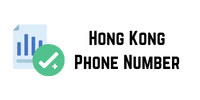Extracting phone number data from websites can be a useful task for market research, lead generation, competitive analysis, or data aggregation. However, it must be approached with careful consideration of ethics, legality, and compliance. When done responsibly — and within legal boundaries — phone number extraction can provide valuable insights for businesses and professionals. This article explores how phone numbers are typically extracted from websites, the tools involved, and the precautions you should take.
1. How Phone Number Extraction Works
Phone number extraction is commonly done using web scraping, a technique where software automatically scans web pages to pull specific data — in this case, phone numbers. Scraping tools look for recognizable number formats using regular expressions (regex). For example, a regex might detect patterns like This method works well for contact pages, business directories, or publicly listed profiles. Once identified, the data is extracted special database and saved into a structured format like CSV or JSON for further use.
2. Tools and Technologies Used
There are several tools and programming languages commonly used for scraping and extracting phone numbers from websites:
-
Python: Widely used for web paid ads: accelerating your lead flow scraping with libraries like
BeautifulSoup,Scrapy, andSelenium. -
Regex: Regular expressions are whatsapp filter used to identify number patterns in text.
-
Data Parsing Services: Tools like Diffbot, ParseHub, or Octoparse provide no-code or low-code options for scraping structured data.
-
APIs: Some websites provide APIs for access to public contact data — a more ethical and scalable alternative to scraping.
Example of a Python regex for detecting phone numbers:
3. Legal and Ethical Considerations
While the technical process is relatively straightforward, legal and ethical boundaries must not be overlooked. Scraping personal contact information, including phone numbers, can violate privacy laws like the GDPR, CCPA, and local data protection regulations. Extracting data from websites without permission may also breach terms of service or copyright. Always ensure:
-
You have permission or are scraping public, business-oriented data (not personal contact info).
-
You’re using the data for permitted, ethical purposes (e.g., B2B research, not unsolicited spam).
-
You respect the site’s
robots.txtfile, which indicates scraping permissions.
